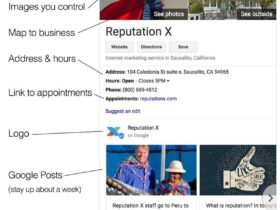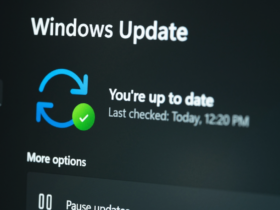From the conference room to the kitchen, we sometimes find ourselves getting caught up in the same self-sabotaging emotional responses: impatience, jealousy, frustration, anger, victimhood, or any number of other automatic reactions. You get triggered, and boom, the same stubborn impulse kicks in. The story in your head starts to play, and you get caught in the narrative of finger-pointing and blame – for yourself or the person who sparked it. Either way, the response feels justified and familiar.
What you’re demonstrating are old emotional patterns, which continue to get stronger every time they play out. According to the experts, if you consistently groove these old pathways, you’ll never get in touch with, and heal the original wound.
We’re not exploring original wounds here, but what might be useful is finding ways to break the negative cycle of emotional reactivity and be totally indifferent to negative external hooks and stimuli. Wouldn’t that be wonderful?
A recent example:
A month or two ago a personal boundary was severely violated. I reacted with anger, indignation, blame, and punitive action. I believed I was totally justified, and repeated my story many times, to the affirming support of those who listened, horrified, by the blow-by-blow retelling of the event, all the while enhancing and strengthening the emotional wound and the negative patterns it supported.
The more this played out, the worse I felt: trapped, confused, disconnected. Family members started suggesting “time out and anti-depressants”. After much reflection and looking for help, I learned there is another way – a healthier way, a more empowering way – to handle it; a way that does not judge or blame or shame the self or the other but recognises and takes responsibility for the triggers of old hurts and creates new responses to them.
This doesn’t mean that what happened is ok. That’s neither helpful nor believable. But it does mean starting to let go of the intractable, self-defeating reactions that no longer serve me.
What a relief.
Here’s what I’ve discovered so far: as a leader of many, or maybe even just one, if you find yourself being triggered by an unhelpful emotional response, these four ways may help you let go of it:
- Recognise your hooks
The first step is to realise you’ve been triggered. Someone interrupts and derails your carefully prepared presentation, and you suddenly feel angry or offended. Or they give you a dismissive look and you lose confidence. Or they’re slow to act and you get impatient. If you can start to notice how you feel emotionally and physically (e.g., blood rushes to the face, heart beats faster), it will give you the power to pause, creating a gap between the trigger and the response. In that gap, you can choose to respond differently. Not easy, but possible.
- Take a moment
Sit with the uncomfortable feeling for a moment. You’ll probably feel awful, and you’ll want to change it, but try not to. This is essential to healing. It takes huge amounts of courage, but bit by excruciating bit, you’ll be able to stay in the feeling longer and longer, and you’ll start to notice it dissolve.
- Stop telling the story
The narrative in your head (even to yourself) keeps you stuck. It keeps you caught in the drama. Whenever you notice yourself replaying the story (of what happened and why your response is justified), find a word to say to yourself, for example, “story” or “thinking” or even “pineapple”. What’s important here is not to judge yourself, or the other, or the story, but that you notice you’re telling it. This brings you back to the present moment and the internal dialogue starts to fall away.
- Allow
Relax and let it go. Breathing, meditation, putting your hand on your heart, EFT, are all methods to release the tension. Allow the feeling to flow. The more your body can relax, the more your mind will loosen the slack.
Practicing these things takes time; it takes courage, willingness, and attention; it takes a real desire to change. But I believe the benefits are worth it. Imagine being confidently at ease in any situation, knowing that whatever happens, you, and it, will be ok. That’s leadership right there. At first, we may just want to heal ourselves, but over time we will naturally create space for others.
It’s a lifetime journey. I’m packing snacks.














